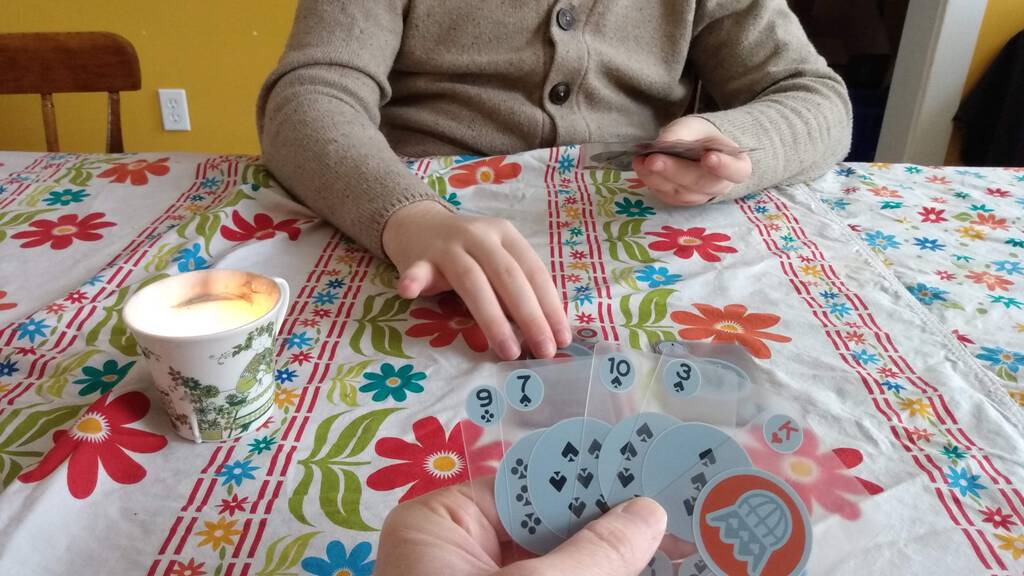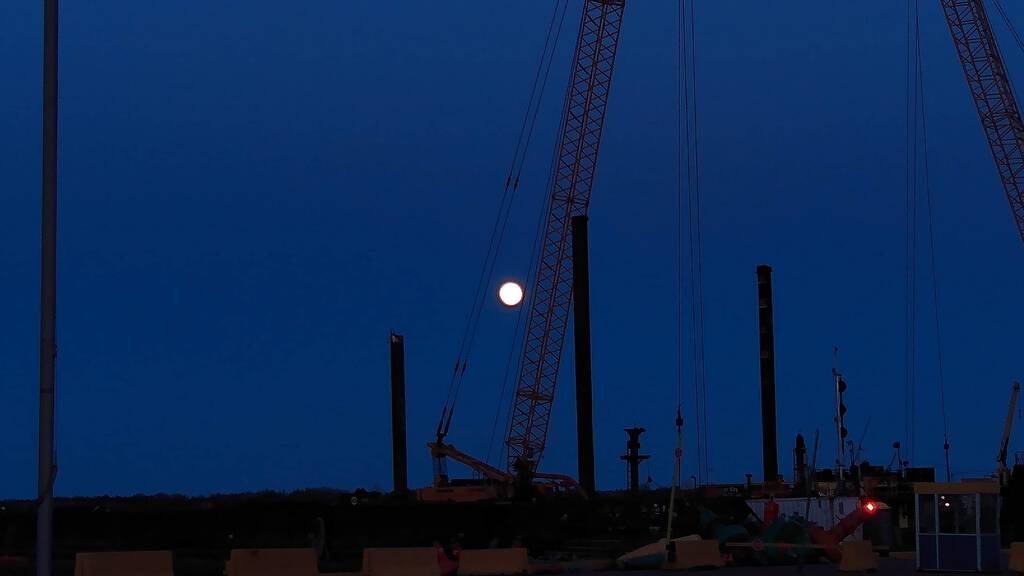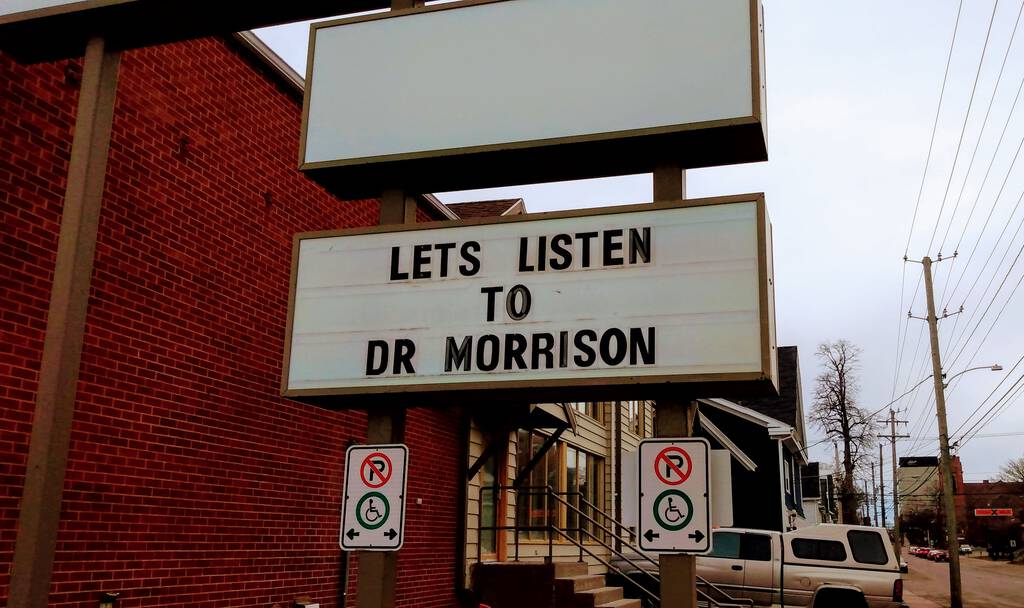The first big trip I took apart from my parents and my brothers was to Thunder Bay with my grandmother Nettie, from August 19 to 26, 1971. She had been born there, in Fort William, as had my father, so it was, in part, a chance for her to take me to one of our family home places. I was 5 years old at the time, and so ready for a small measure of independence, so it was, I think, her helpful gift to enable that.
Tonight I opened a suitcase that I’d been carting around for years, a suitcase that I hadn’t opened in 30 years. Inside the suitcase, I found a blue travel journal with “My Travels” embossed in gold on the front. Here’s what she noted about our trip:
5 days sunshine, 2 days rain. Went by plne to Malton. Stayed at Royal Edward. Took bus tour up Mt. McKay and Kakabeka Falls. Took boat around Harbour. Saw oldest information centre in Canada. Had tour of “Nonsuch,” Hudson’s Bat Co. whaling ship moored in Harbour in Pt. Arthur. Visited Vickers park (beautiful flower beds, marigold bed ruined), walked past rows of very old beautiful birch trees, saw Nana’s high school, walked along Ft. William freight docks, saw polluted Kaministiquia River - snapped picture alongside tugboat. Visited Chippewa Park - Peter climbed up rocket - had rides - saw Sleeping Giant in distance - visited beautiful park in centre of city - beautiful flowers and founatins. Nestor’s for lunch, then drive to cemetery - saw Dad’s grave, visited Conservatory (beautiful tropical plants), saw Lakehead University, Peter ran elevator. Ate waffles in coffee shop. Wonderful week. Peter an angel. Flew back.
I don’t believe I’d ever read those notes until tonight, but I certainly remember almost everything she noted, down to the waffles.
When I started traveling with Oliver, I followed in her travel journal tradition; on the shelf here beside me are Moleskin’s filled with notes of our travels around the world.
From an essay by Corinne Duval in Belt:
This could have been a love story, if he was a better man and it wasn’t the Rust Belt. But I ended it—ended us—and he demanded the house. I could have fought for it. But what would I have been fighting for? Paper? Textualized plans and well-made arguments? No. I know we could have done it all so much better. All that possibility: windows to start, happiness to end. But I couldn’t keep holding us both up when he was so determined on the fall.
Coming up on Monday, April 13, 2020, the Folk On Foot Front Room Festival:
Help us to stage an amazing virtual folk festival on Easter Bank Holiday Monday – and support musicians who’ve lost their livelihoods during the coronavirus lockdown.
The Lineup: Bella Hardy, Beth Porter plus the Bookshop Band, Jon Boden, Julie Fowlis and Éamon Doorley, Karine Polwart, Kerry Andrew (You Are Wolf), Kris Drever, Lisa Knapp and Gerry Diver, Martin Simpson, Nancy Kerr and James Fagan, Peggy Seeger, Rachel Newton, Sam Lee, Seth Lakeman and Steve Knightley - all playing sets of up to 30 minutes each in their front rooms.
When: Easter Bank Holiday Monday 13th April from 2pm for over six hours of unique music.
Where: from the Folk on Foot YouTube Channel and Facebook page – direct to your front room.
That’s 2:00 p.m. GMT, which is 10:00 a.m. Atlantic Time (thanks to Jarek, in the comments, for noting British Summer Time).
(via musician Karine Polwart’s email newsletter, which is worth a subscribe; she appears on an episode of the Folk on Foot podcast in 2018)
When the PEI Council of People with Disabilities advises government of the utility of having sign language interpretation of government pandemic briefings, the correct response is to immediately secure the services of sign language interpreters.
Like Matt Webb, my childhood featured a bomb that would make the people disappear, but leave everything else intact:
I grew at the tail end of the Cold War. My unquestioned assumption was that I would probably live out my life in a nuclear wasteland.
One of the things we’d talk about was the neutron bomb. This type of bomb would leave cities buildings intact, and it had very little fallout so the city would be safe to occupy after it was dropped, but the people would all go. Not die, that wasn’t the myth of it, but somehow vapourised — raptured up to heaven, really. It was called the “clean” bomb. The mental image was of an urban Mary Celeste.
This wasn’t science fiction for me: I remember the stories on the news making it seem a very real possibility.
Webb goes on to ruminate on “key workers” and the “key economy”—what we call essential workers and essential services—and how they have been separated from the economy in a way that renders then distinct and as we could never see them before.
I’ve been wondering about what the long-term effects on those deemed non-essential of being furloughed will be: it’s bracing to be told that your role in society is a “nice to have” not a “need to have.”
Via the Institute of Island Studies newsletter, a link to the OTOK Podcast, “a podcast about and for islanders.”
The second episode features Nenad Starc discussing the impact of COVID-19 on the inhabited islands off the Croatian coast:
Nenad Starc is professor emeritus at the Institute of Economics in Zagreb, Croatia and one of Croatia’s most prominent island scholars. We talked about islands as places of refuge in the time of COVID-19; the shortcomings of public policy that doesn’t account for island specificities; and the impacts pandemic will have on tourism industry.
These are issues we on Prince Edward Island are going to confront in the weeks to come: are we going to bite the bullet and take a year off tourism? If so, what will this be like? (And what if we like it so much that we decide we don’t actually want the tourists to return after the all-clear?).
At 100 Prince Street we’ve been working to rebuild some semblance of a new routine upon which to hang our hats.
Some of the elements of this new routine, like nightly Crazy 8s, are novel. We use Invisible Playing Cards. And Bicycle rules (no turning over the stock when it’s exhausted!). We were tied 5 wins to 5 wins until last night, when I jumped into the lead. I suspect this is temporary, though, as Oliver is improving every night, and I am not.

Some of the elements are adaptations of Stars for Life routines.
Every Tuesday at Stars for Life clients take turns making a presentation on a topic of their choice; we’ve reconstituted this at home as Weekly Learning Seminar. Oliver takes one week, I take the next, and so on.
Last week was Oliver’s turn, and the topic was Nikola Tesla. Tesla was born in Smiljan, a village that’s a 19 minute drive from where my Croatian grandfather was born, so we have some familial affinity for him. But his story is fascinating even without that connection: so much of what we consider “modern convenience” was born of his invention.
Yesterday it was “Introduction to Human Sexuality,” my turn. Because if fathers and sons can’t talk about labias during an pandemic, when exactly are we going to talk about them. So we talked about sex, and consent, and what stimulation means, the importance of talking–a lot–and the particular challenges that autism might bring to sex.
Oliver’s told me that I can pick his topic for next week, and that it can be anything I want.
Otherwise, the most obvious change in our daily routine has been a pushing forward of our meals: although I get up at the usual time–earlier, in fact, this week–Oliver gets up mid-morning, which delays lunch until mid-afternoon, and supper until well after the usual 6:00 p.m. dinner bell. Last night, because we dashed to the waterfront to see the Pink Moon, we didn’t eat supper until 8:30 p.m.

Back in the early days of blogging, if you were a late-nite talk show host and wanted to parody the medium, you’d go on about how bloggers were inward-focused chroniclers of the minutiae of daily life.
It turns out that reading about the minutiae of others’ daily lives, during this time when we’re all shut-ins, is extremely salving to the soul.
That’s why I love reading Elmine’s chronicles of life in Amersfoort every morning, and Brent’s occasional tales of virus avoidance in Seattle, and Clark’s despatches from across the river.
Maybe there’s a Weekly Learning Seminar topic in there?
Danny Caine, proprietor of The Raven Book Store, writes about an event the store held, just as the world was shutting down, with author Louise Erdrich.
He finishes:
As we walked over to the fire, the caretaker stood, unfolding his lanky frame. He nodded at us. Louise crouched and pulled some sage out of her bag. She crumbled off a few leaves and tossed them into the fire. They missed, landing on a cool spot away from the flame. She reached her hand right in there and grabbed the sage, placing it directly on top of the embers. She didn’t flinch.
Standing, she said, “thank you for tending this fire. What’s your name?”
“Junior,” the caretaker said. “Yours?”
“I’m Louise, and this is Danny.”
Junior reached across the fire to shake our hands. It was my last handshake.
The entire story is spread over two issues of Quoth The Raven, the store’s excellent email newsletter
If you’re at all interesting books, authors, reading, words, small towns or Kansas, you really should subscribe.
Remember back in the day when there was interoperability between messaging platforms? When the hope was held out that we would all be able to seamlessly chat, with a single app, a single account, with anyone, just like we can send and receive email with anyone, regardless of how and where they manage their email.
Remember?
Now I have this:

Skype, Slack, Teams, Android Messages, Telegram, Zoom, Signal. Oh, and email.
I have all the same apps running on my phone too.
Where did we go wrong?

 I am
I am